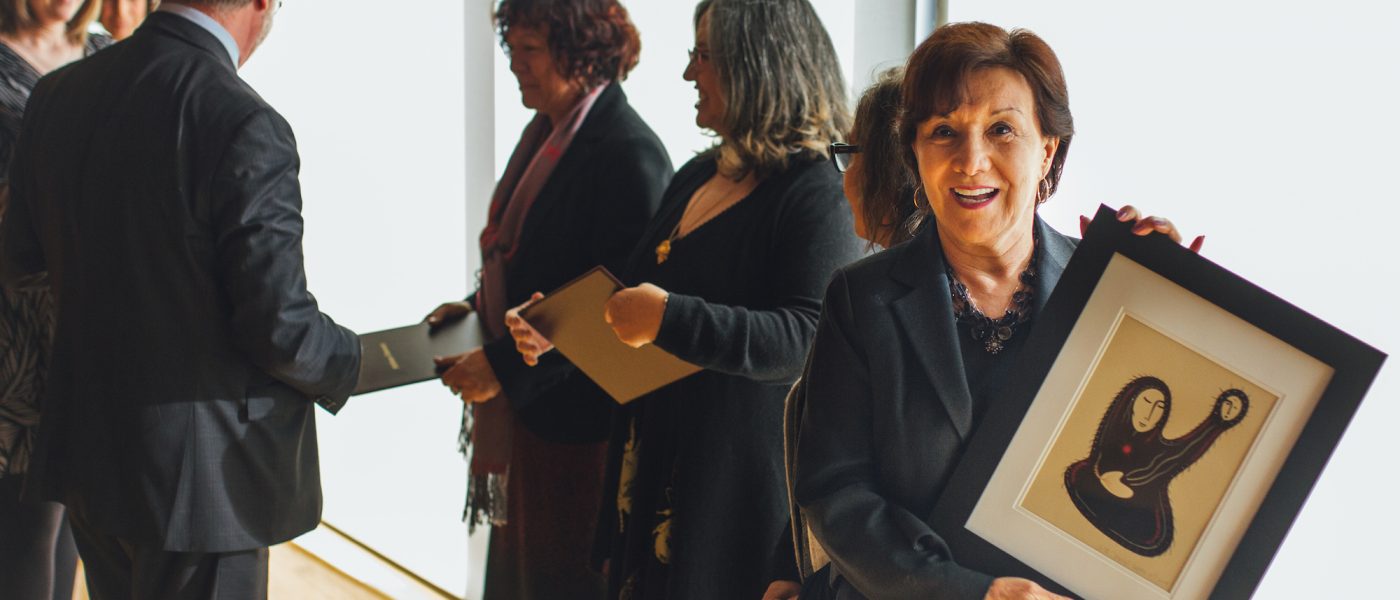Overview
The President’s Award for Community-Engaged-Research (PACER) recognizes teams of campus and community representatives who have demonstrated a commitment to initiating and supporting excellence in community-campus research initiatives.
Developed to recognize and celebrate local (Golden Horseshoe and Southwestern Ontario) community-engaged research partnerships that exemplify McMaster’s definition and principles of community engagement, the award will include two $10,000 grants towards furthering a specific community-engaged research project.
Information Box Group
New This Year
This year, we are opening the nominations for two PACER Awards. Through our consultations with community and conversations with the PACER Selection Committee, it became evident that there are two distinct categories deserving recognition: grassroots projects and emerging partnerships, as well as established projects and longstanding partnerships. In a commitment to honouring excellence in both realms, President David Farrar has enthusiastically approved the establishment of this new PACER format.
Information Box Group
Applications for the 2024-2025 Cycle Are CLOSED
Please watch this space for the announcement of the next award cycle.
Expandable List
| Stream 1: Established Projects/Longstanding Partnerships | Stream 2: Grassroots Projects/Emerging Partnerships |
Eligible Nominators
|
Eligible Nominators
|
Eligible Nominees
|
Eligible Nominees
|
The President’s Award for Community-Engaged Research (PACER) has a two-step nomination process.
Step 1: Submit a Nomination
The nomination submission should include the following details:
| Stream 1: Established Projects/Longstanding Partnerships | Stream 2: Grassroots Projects/Emerging Partnerships |
Context
|
Context
|
Contributions
|
Contributions
|
Step 2: Nominees Provide Supporting Documents
Along with the nomination, please submit the following supporting documents:
| Stream 1: Established Projects/Longstanding Partnerships | Stream 2: Grassroots Projects/Emerging Partnerships |
Project Overview
|
Project Overview
|
| Faculty Member CV(s)
One (1) CV per McMaster faculty member involved in the project |
Faculty Member CV(s)
One (1) CV per McMaster faculty member involved in the project |
| Three (3) Letters of Recommendation
Contents:
|
Three (3) Letters of Recommendation
Contents:
|
All nominations will be evaluated by an interdisciplinary selection committee including student, instructor, staff, and community representatives on the following criteria:
- Does the partnership align with McMaster’s definition of community engagement* and model McMaster’s principles of community engagement?
- Does the partnership include students in the project, thereby building capacity for future leadership in the field?
- Does the partnership support and/or inspire change in the community(s) where the partnership is working? Is there a clear impact on the community(s)?
- Does the partnership have a clear plan to use the award money to further their efforts and benefit the community?
- For the grassroots stream: is there a demonstrated need for funding/increased capacity in order to start/continue the project?
*The definition of Community Engagement used to evaluate submissions includes:
- Valuing the expert knowledge and passion that members of the community have about their communities and issues affecting them
- Fostering ongoing collaboration between University and community partners on how to better understand and consider the issues identified as priorities by local communities
- Performing research with community members and partners for the public good within the local community
The Selection Committee consists of the following members:
- Two faculty members
- Two staff members
- Two community representatives
- Two student representatives
If you are submitting multiple files, please add all files to a folder before submitting.
- Please use this form to submit your full package (nomination and supporting materials): https://forms.office.com/r/zSgSb4u0Hc
- Please Note: Only McMaster staff and faculty would be able to upload files/videos/recordings to the form (MS Forms restriction) but we recommend that project teams work collaboratively to complete the award package.
If you are having any difficulty with the form or require an alternative method of submission, please reach out to Shahad Al-Saqqar (alsaqqss@mcmaster.ca)
EXTENDED DEADLINE for full award package submission – Tuesday, August 6th 2024
If you have inquires or require assistance for putting together the nomination submission, please email Shahad Al-Saqqar at alsaqqss@mcmaster.ca
President’s Awards FAQ
Expandable List
Projects that take place in and have an impact in the Golden Horseshoe and Southwestern Ontario area constitute as a local project.
If you are unsure that the project you are nominating qualifies as a local project, please email Shahad Al-Saqqar for support at alsaqqss@mcmaster.ca
Community Engaged Research is a subset of action research: a family of research methodologies that pursue action (or change) and research (or understanding) at the same time. This award particularly recognizes individuals who incorporate the community as partners into their active research.
The Selection Committee especially appreciates nominations of projects which:
- value the expert knowledge and passion that members of the community have about their communities and issues affecting them
- foster ongoing collaboration between University and community partners on how to better understand and consider the issues identified as priorities by local communities
- perform research with community members and partners for the public good within the local community
For the purposes of this award, the two types of Community Engaged Research, Community-Based Research (CBR) and Community Based Participatory Research (CBPR), are equally valued
Community-Based Research involves collaboration between community groups and researchers for the purpose of creating new knowledge about a practical community issue to bring about social change and/or action. It is:
- built from the strengths of communities
- grounded in social justice and equity
- based on reciprocity and aims to provide mutual benefits to all partners
- flexible in the forms of knowledge it incorporates, collecting, analyzing, and sharing data in multiple ways to a variety of audiences
- focused on providing opportunities for co-learning
- supportive of ongoing collaboration among those involved
Community-Based Participatory Research focuses on joining with the community as full and equal partners in all phases of the research process. It is:
- focused on social, structural, and physical environmental inequities
- premised on active participation of community members, organizational representatives, and researchers
- designed to use partners’ expertise to enhance understanding of a given phenomenon
- intended to integrate the knowledge gained with action to benefit the community involved
- committed to ensuring equal partnership in all stages of research, including decision-making and ownership
Program evaluation can be considered a form of community engaged research in two cases:
- the program under evaluation is community-based and program users participate in determining definitions and/or indicators of success, and evaluation findings are used to shape program elements and designOR
- the program under evaluation is a McMaster program and community partners participate in determining definitions and/or indicators of success and community partners’ feedback shapes program elements and design
The following action-oriented principles were co-developed by community and University partners to inform our community-campus partnerships:
| Relationships | We can’t have community without relationships—these are the connections that build community. Any successful partnership must be built on trusting and respectful relationships guided by integrity. We realize that relationships take time to develop and thus we commit to providing opportunities to connect people across communities, sectors, and disciplines. |
| Reciprocity | From design, to participation, to the outcomes of a project, we strive to work together for mutual benefit. |
| Equity | We are conscious of the historical and structural inequities that exist in society and strive to provide access and opportunities to all residents and members of our communities. |
| Continuity | Acknowledging that different communities work on different timelines and schedules, we strive to consider both the short and long-term implications of our work together. |
| Openness to Learning | Change takes time. We are committed to continually learn from and evaluate our work together, reflecting on and sharing both our successes and failures to grow as individuals, partnerships, and communities. |
| Commitment to Act | We aspire to make a positive difference in our community by sharing and acting on our knowledge to contribute to the greater social good. |
You can address the nomination submission to the “Selection Committee”.
PACER Recipients
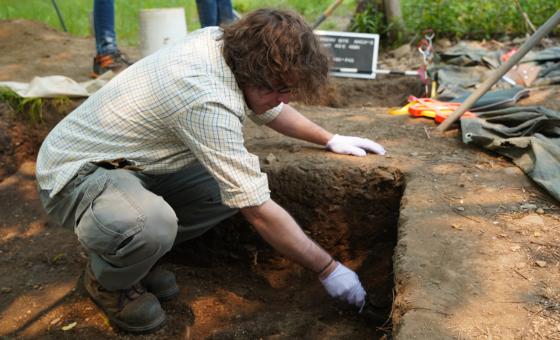
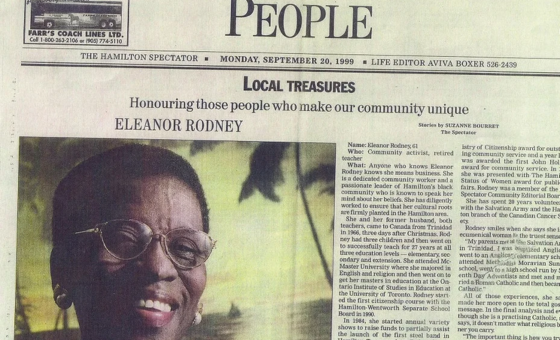
2024-25 Recipients: Collaborative Archaeologies, Decolonized Foodways, and The Hamilton Black History Database
Stream 1 (Established Projects/Longstanding Partnerships) Recipient: Collaborative Archaeologies, Decolonized Foodways
This community-based project explores the history of Indigenous foodways in the Six Nations of the Grand River (Haudenosaunee) territory using a collaborative settler-Indigenous archaeology approach. Led by partners Andrew Roddick, Adrianne Lickers Xavier, Scott Martin, Lindi Masur (McMaster University), and Tanya Hill-Montour (Six Nations Archaeology Department), it supports the Truth and Reconciliation Commission of Canada’s Call to Action #43 and aligns with UNDRIP. Conducted at Sustainable Archaeology McMaster, the research aims to promote Haudenosaunee food sovereignty by reconnecting with ancestral diets, using biomolecular archaeology to deepen understanding of the past while centering Indigenous voices, and encouraging heritage research in Indigenous communities. Researchers use advanced lab techniques to identify food residues in archaeological artifacts, a first in Ontario with Indigenous partnerships.
Stream 2 (Grassroots Projects/Emerging Partnerships) Recipient: The Hamilton Black History Database
The Hamilton Black History Database is a valuable educational resource launched in February 2022, designed to make the history and contributions of Black communities in Hamilton accessible to the public. Created in partnership with the Hamilton Black History Council (Terri Bedminster), Afro-Canadian Caribbean Association (Evelyn Myrie), and McMaster’s Centre for Community Engaged Narrative Arts (Daniel Coleman, Lorraine York), the online portal serves schools and libraries, promoting Black history education. McMaster alum Aaron Parry led research efforts, working with local Black communities and organizations to gather and organize historical information and artifacts. After compiling the content, focus groups reviewed the portal to ensure it met community needs before its public launch.
2022-23 Recipients: The Niagara HELPS Program Team
Campus Partner(s): Dr. Stephenson Strobel, Dr. Rahat Hossain, Chris Henderson, McMaster University Dept. of Medicine
Community Partner(s): Quest Community Health Centre (Shilpee Rana, Tyler English, Scott Cronkwright), Niagara Health Emergency Departments
The Niagara Homelessness Emergency Liaison and Peer Support (HELPS) program has been operational since late 2019. HELPS began as a prospective trial of peer support navigators with lived experience of homelessness providing services to patients experiencing homelessness in the St. Catharines and Niagara Falls Niagara Health Emergency Departments. Over the course of two years, HELPS has concluded its research phase with McMaster University and now continues in the region as a stand-alone health service in partnership between Quest Community Health Centre and the Niagara Health system, continuing to serve the most vulnerable members of the community based on a model that was originally developed and tested through this community-campus collaboration.
2021-22 Recipients: The Second Heart Project
The Second Heart Project is being recognized for their work in developing a peer-focused and multi-disciplinary harm reduction strategy to integrate peer support workers with lived experience of drug use into the care team for people who use drugs (PWUD) and who are hospitalized for infective endocarditis (IE). Peer support workers can remove barriers to continuity of care and access to care to improve outcomes and experiences of PWUD in hospital settings. Centering peer support workers as essential members of the care team brings members of the community into the care team to better address the unique medical, psychosocial, and health system challenges experienced by this population.
The team is co-led by Drs. Robin Lennox and Leslie Martin and consists of 11 co-investigators in public health, primary care, surgery, internal medicine and infectious disease, 5 medical students/residents and staff from McMaster Family Practice and 3 community members from the Canadian Mental Health Association (cmha.ca) and Keeping Six (keepingsix.org).
Second Heart began with an exploratory qualitative study identified gap and need in community-based care for PWUD experiencing acute illness in Hamilton. Peer support workers were identified as the “bridge” necessary to provide peer support and facilitate trust between PWUD and the health care system. This study led to the development of the university-hospital-community partnership and a proposal to the Hamilton Academic Health Sciences Organization to fund a two-year pilot project which was granted in April 2020.
This project exemplifies a novel yet feasible community-based model of care that puts persons with lived experience of drug use at the centre of a multi-disciplinary health and social services support team for a groups of persons (PWUD with IE) that experience significant barriers in access to health care, and even more so since the COVID-19 pandemic.
2020-21 Recipients: The Brightside Neighbourhood Project
Brightside was a neighbourhood of workers and immigrants that flourished in the shadow of heavy industry in Hamilton’s east end from 1910 until the late 1960s, when it was mostly demolished. Despite having been one of the most diverse and vibrant working-class neighbourhoods in Hamilton’s era of industrial flourishing, many contemporary Hamiltonians have never heard of Brightside.
That’s an excerpt from ‘Notes from The Brightside Neighbourhood Project‘: a collaboration between former residents of the Brightside neighbourhood in Hamilton, local authors, artists, and historians, including McMaster’s Nancy Bouchier, a professor in the department of history. Started in 2017, this research project re-animates memories of the Brightside community and documents history through audio, written, pictorial and digital formats.
For their ongoing collaborative research approach and community engagement, Bouchier and Project facilitator Simon Orpana are the recipients of the President’s Award for Community-Engaged Research.
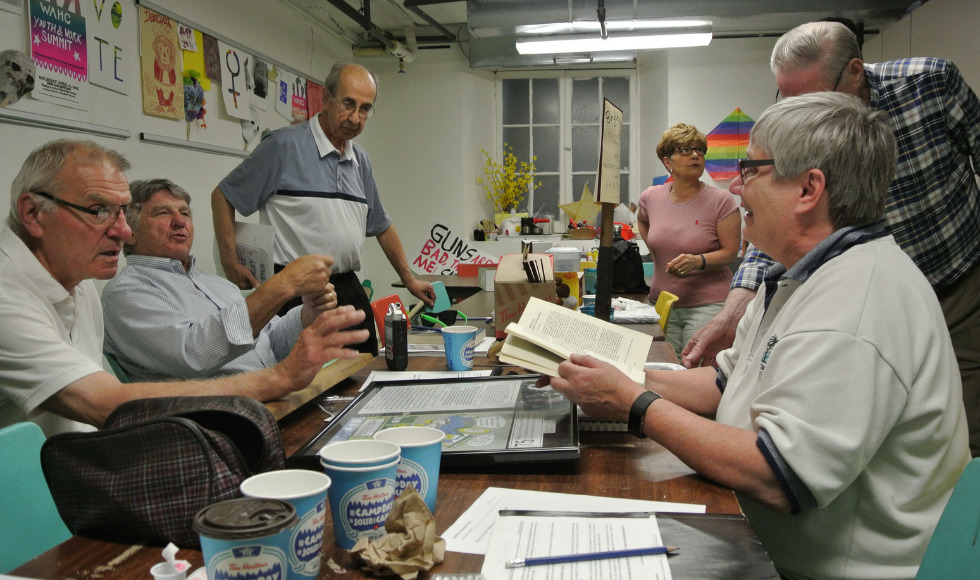
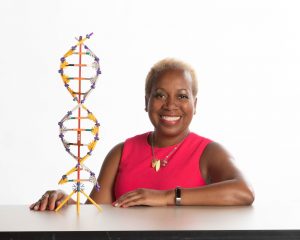

2019-20 Recipients: Dr. Juliet Daniel & The Olive Branch of Hope
Together, McMaster researcher Juliet Daniel and community advocate Leila Springer are making a difference in the lives of thousands of racialized women.
Daniel, a renowned molecular biologist and professor, has focused much of her research on studying triple negative breast cancer (TNBC) – a particularly aggressive and often fatal form of cancer that disproportionately strikes women of African ancestry.
Springer, the founder and executive director of the Olive Branch of Hope, has spent the past 20 years providing support to Black women in the GTA living with breast cancer.
The two joined forces in 2015, bringing together their unique research and programming strengths to help inform Black women about TBNC and about the risks it poses, particularly to women of African ancestry.
Since then, Daniel and the Olive Branch of Hope have developed a host of educational and fundraising initiatives aimed at increasing awareness of TNBC among women of African ancestry in Hamilton, the GTA, and internationally.
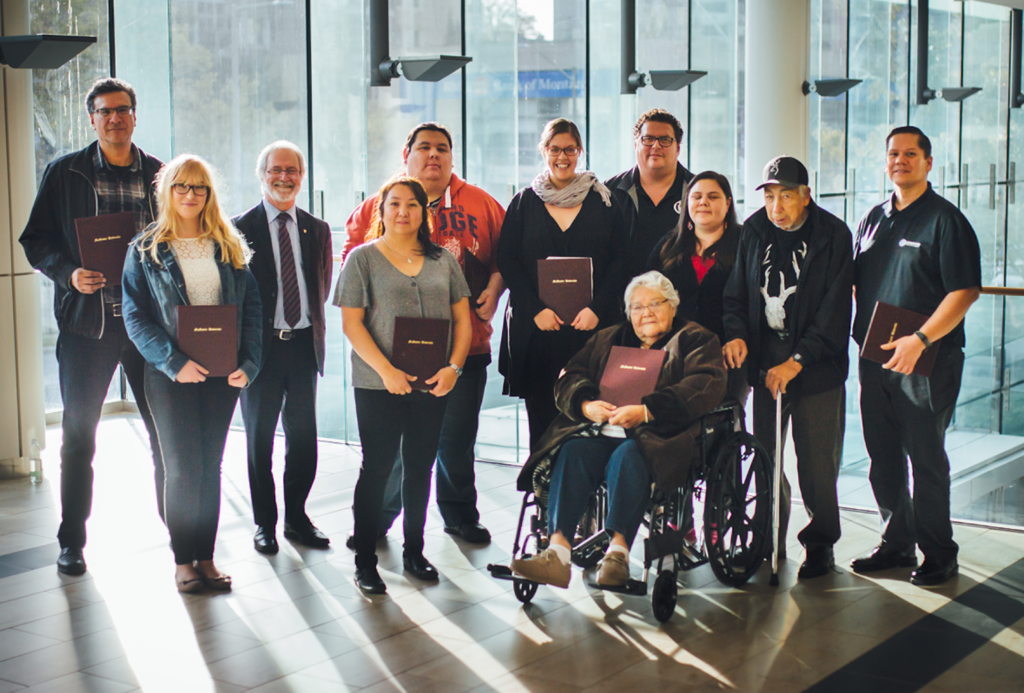
2018-19 Recipients: Grand River at Mohawk
The Grand River Mohawk at McMaster project– developed by a team of community members, as well as faculty, students and staff from McMaster and Six Nations Polytechnic – aims to preserve a dialect of the Mohawk language spoken at Six Nations of the Grand River by only a handful of speakers, most notably, Mohawk Turtle Clan member, Ima Johnson.
Drawing from methodologies and techniques rooted in Indigenous Knowledge and language revitalization scholarship, team members have worked collaboratively to create numerous Mohawk and Cayuga language recordings and resources, such as baking and cooking-themed Mohawk/Cayuga language lessons; the “Mohawk Word of the Day” – a social media and vocabulary sharing project; and a language toolkit to be shared with Ontario universities on how to respectfully approach Indigenous language and teaching when partnering with Indigenous communities.
The project team includes; Mohawk language teacher and Faith Keeper, Ima Johnson; Indigenous and Indigenous Studies students from McMaster and Six Nations Polytechnic, Kate Brown, Laurie Powless, John Hill, Clare Richardson, Mary-Ellen Simon, Geeg Hill, Scott Longboat and Amber Squire, with Indigenous Studies staff support from Josh Dockstator; the faculty supervisor is Rick Monture, associate professor in McMaster’s English and Cultural Studies Department, and past academic director of the Indigenous Studies Program.
2018-19 Recipients: We are Not the Others
We are Not the Others, developed by Mirna Carranza, associate professor in McMaster’s School of Social Work in partnership with Nora López, coordinator, Emergency Support Committee for Refugees; Ines Ríos, executive director of the Immigrants Working Centre; and María Antelo, coordinator of community development at the Hamilton Community Legal Clinic, is a play based on the findings from a research study that aimed to learn how the intersection between acculturation, gender relations and intimate partner violence, intergenerational tensions, trauma, loss and ongoing political fear, and economic exclusion impacts Women Immigrants’ mental health and in particular their socio-economic integration to the Hamilton community.
As part of the study, service providers, families and women immigrants were interviewed, many of whom shared their experiences of reception in formal and informal settings, such as schools and grocery stores, and spoke about their experiences of racism and marginalization. The play used their spoken words, including their laughter and sorrow, to depict both their challenges and hopes. It was co-created with women immigrant themselves, as a way to bring their knowledge and stories to a wider audience.
PACER Events
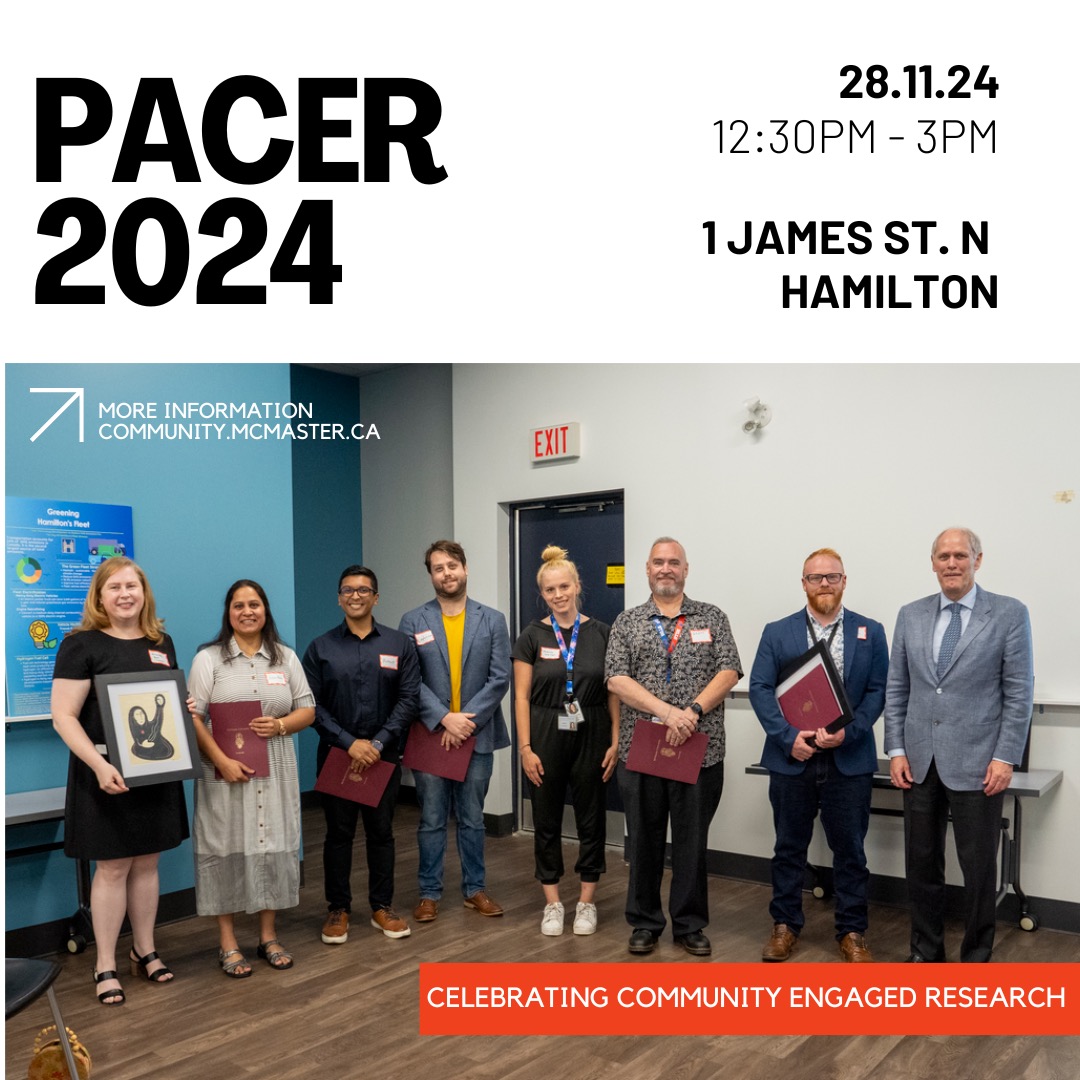
Join us in celebrating the nominees and award recipients for the President’s Award for Community-Engaged Research!
Date: November 28, 2024
Time: 12:30pm – 3:00pm
Location: 1 James St. N, Hamilton, ON, L8P 1A1

